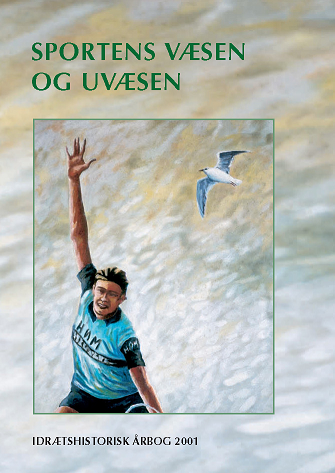Sejrskode, økonomi og politik som begrundelse for sundhedsfare og regelbrud - doping-historie og doping i DDR
DOI:
https://doi.org/10.7146/ffi.v17i0.31739Resumé
Dopinghistorien som normativ og rekonstruerbar.
Victory code, economics and politics as grounds for health dangers and infringement of rules – the history of doping and doping in the DDR
Doping has a history – and that history can be reconstructed. This emerges from a sports science report on what was in part a depressing past in the DDR. This recognition, however, gives also cause for cheer. Like the historical debate in Germany about the understanding of sport under National Socialism, systems of doping and sports in the DDR, the pros and contras of the doping debate, have special significance. Recognition of normative tendencies (such as the Frankfurt school’s) permit at the same time also a value judgement and in that way provide help in not repeating mistakes already committed. In the best instances it can even succeed in correcting structural defects. Contemporary history as critical social science has an express enlightening role here and can at the same time to a considerable extent be action-oriented. That is to say, that its results can be used in practice.
Downloads
Publiceret
Citation/Eksport
Nummer
Sektion
Licens
Forfattere, der publicerer deres værker via dette tidsskrift, accepterer følgende vilkår:
- Forfattere bevarer deres ophavsret og giver tidsskriftet ret til første publicering, samtidigt med at værket er omfattet af en Creative Commons Attribution-licens, der giver andre ret til at dele værket med en anerkendelse af værkets forfatter og første publicering i nærværende tidsskrift.
- Forfattere kan indgå flere separate kontraktlige aftaler om ikke-eksklusiv distribution af tidsskriftets publicerede version af værket (f.eks. sende det til et institutionslager eller udgive det i en bog), med en anerkendelse af værkets første publicering i nærværende tidsskrift.
- Forfattere har ret til og opfordres til at publicere deres værker online (f.eks. i institutionslagre eller på deres websted) forud for og under manuskriptprocessen, da dette kan føre til produktive udvekslinger, samt tidligere og større citater fra publicerede værker (se The Effect of Open Access).





